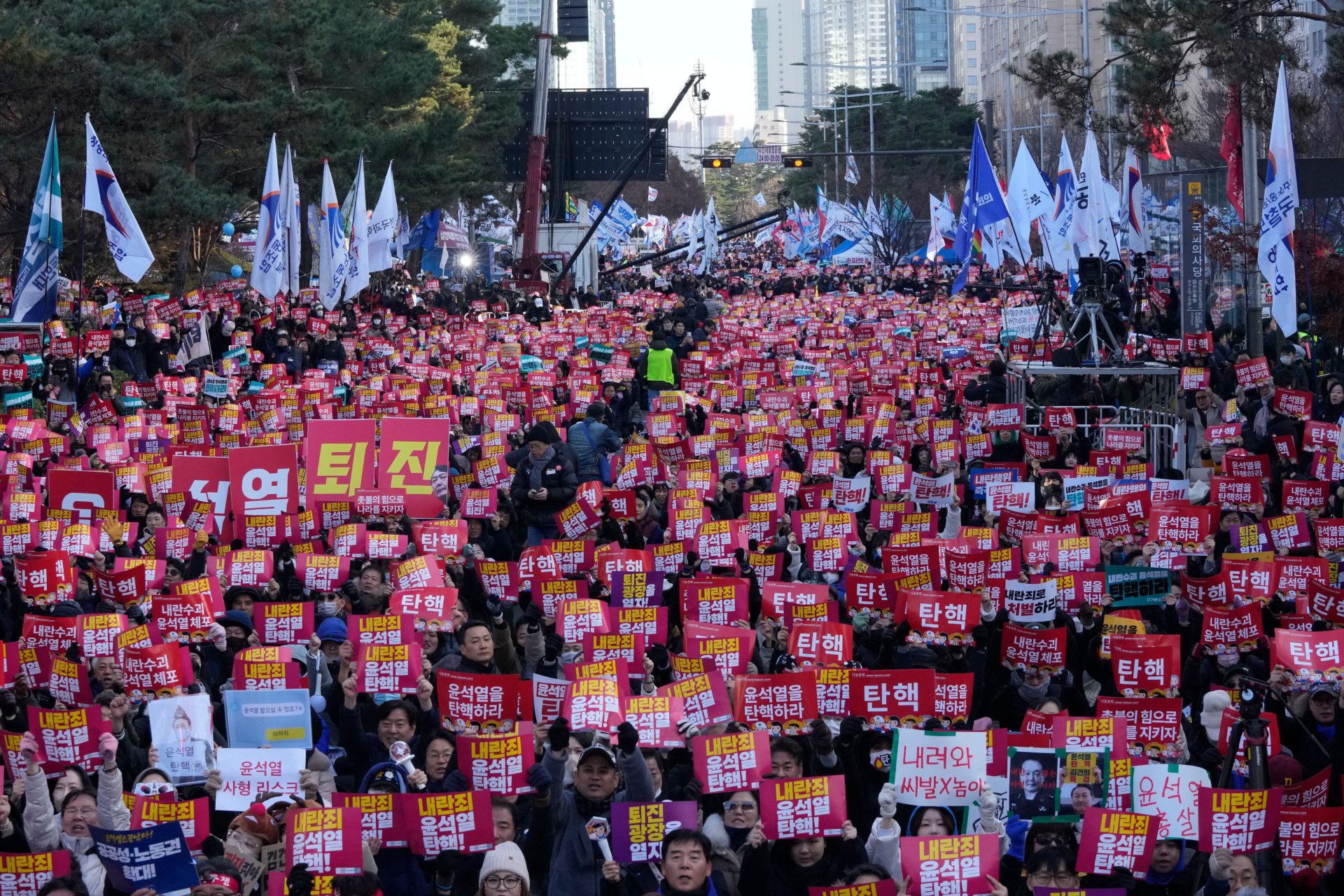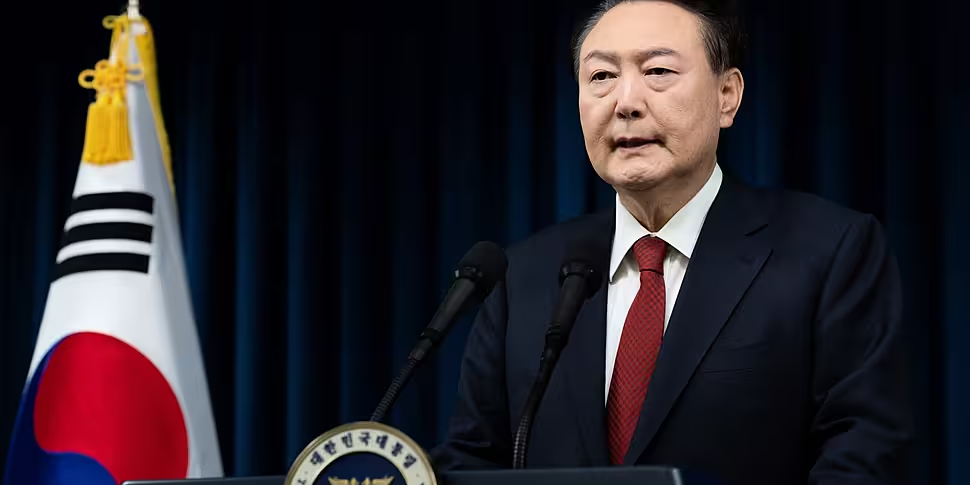South Korea's president Yoon Suk Yeol has made a public apology for declaring military rule in the country earlier this week.
Mr Yoon, 63, is facing impeachment proceedings after declaring martial law on Tuesday.
The move was faced with immediate public and political opposition, and saw protesters storm the parliament building in response.
Within a few hours, politicians returned to parliament and voted to reject the law.
The vote, which passed 190-0, took place as hundreds of armed troops circled the National Assembly in an attempt to disrupt proceedings and detain certain politicians.
Mr Yoon said at the time that martial law was necessary to defend the constitutional order and "eradicate the despicable pro-North Korean anti-state forces".
Opposition politicians have claimed that Mr Yoon's actions amounted to an attempted coup.
 Protesters stage a rally demanding South Korean President Yoon Suk Yeol's impeachment, following the president's short-lived martial law declaration. The signs read, "Impeach Yoon Suk Yeol." (AP Photo/Ahn Young-joon). Saturday, Dec. 7, 2024.
Protesters stage a rally demanding South Korean President Yoon Suk Yeol's impeachment, following the president's short-lived martial law declaration. The signs read, "Impeach Yoon Suk Yeol." (AP Photo/Ahn Young-joon). Saturday, Dec. 7, 2024.The president has since apologised, and said his actions came from a place of ‘desperation’.
“This declaration of martial law was made out of desperation as the president, who is ultimately responsible for state affairs,” he said.
“However, in the process I caused anxiety and inconvenience to the people.
"I am very sorry.”
Impeachment vote
Mr Yoon's words came just hours ahead of a parliamentary vote to impeach him.
The motion has been submitted by the opposition parties and requires a two-thirds majority to pass.
Impeaching Mr Yoon would require 200 votes of the National Assembly's 300 members.
The opposition parties that brought the impeachment motion have 192 seats combined - meaning that at least eight of Mr Yoon's own People Power Party would need to vote against him.
Party leader Han Dong-hoon said that said that Mr Yoon was no longer in a position to carry out his duties and his resignation was "unavoidable".
Opposition leader Lee Jae-myung said he would work to end Mr Yoon's term early and that he faced a choice of stepping down or being impeached.
Main image: South Korean President Yoon Suk Yeol speaks at the presidential office in Seoul, South Korea, (South Korean Presidential Office/Yonhap via AP). Saturday, Dec. 7, 2024.









